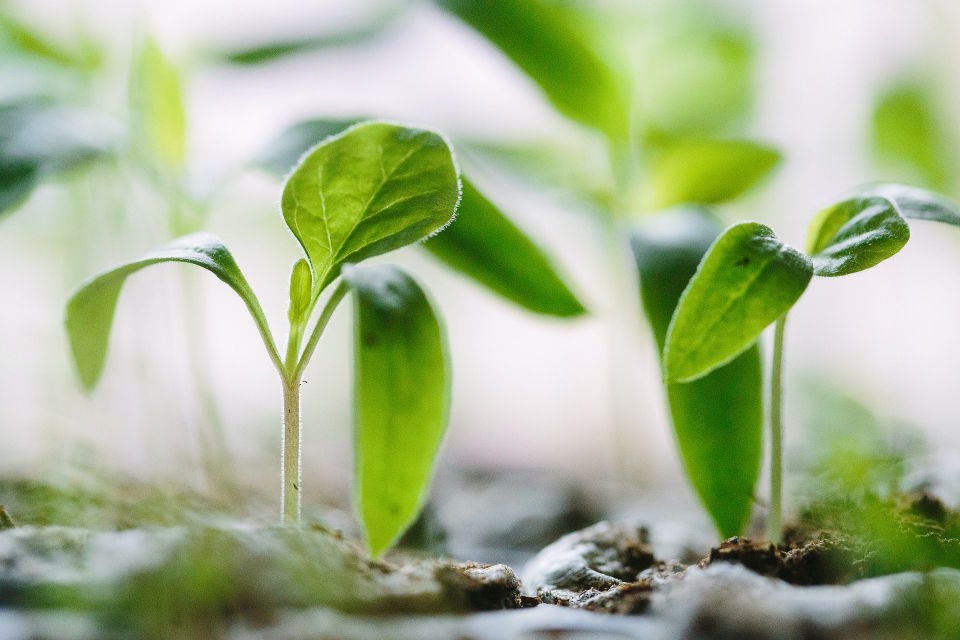 Photo by Francesco Gallarotti on Unsplash
Photo by Francesco Gallarotti on Unsplash
Are you green minded?
If someone calls you green minded, what do you feel? Like many, you feel insulted or embarrassed. The word is associated with a “dirty mind” referring to someone who is preoccupied with thinking about sex in an indecent way. But there is also another meaning, that is, being ecologically conscious, acting on sustainable practices towards preservation and renewal of one’s environment. The latter is our mission. It requires a change of heart and mind.
This year, the Church celebrates the Ignatian Jubilee (2021-2022). This period recalls St. Ignatius’ conversion and transformation marked by his injury and near death during the battle of Pamplona in 1521. The tragic event changed his life from being a soldier to a saint. His renewed life and newly found purpose, “for the greater glory of God” led to the founding of a missionary group of priests and brothers which were among the early missionaries who came to the Philippines in 1581.
The theme for Ignatian Jubilee is “to see all things new in Christ” which draws inspiration from St. Ignatius’ recognition of God’s purpose for his life and his response of turning his life to make this happen. Everything begins in the mind: a conscious discernment and recognition that God’s purpose in creation is communion and solidarity, not exploitation and abuse. Being green minded is being God’s faithful, caring steward for our common home.
One of the initiatives of the Jubilee is to support Pope Francis exhortation’s Laudato Si, and the global movements for responsible and sustainable action to care and foster our environment. In this effort, we are invited to a shared dialogue and prayerful discernment on how we can improve and sustain ongoing efforts of environmental preservation and renewal, especially now in the “new normal”.
The present pandemic is one of the many ecological woes and, perhaps, the most painful reminder to us of taking responsibility for our role as stewards and guardians of our common home. Pope Francis in Laudato Si laments, “For human beings to degrade the integrity of earth by causing changes in climate, stripping the earth of its natural forests or destroying its wetlands; for human beings to contaminate the earth waters, its land, its air and its life—these are sins. [LS no. 15]. He attributed this sad state to “overconsumption, greed, wastefulness.”[LS no. 17].
The Pope exhorted us towards a “way of loving, of moving away from what I want to what God’s world needs.” He invites us to look at the mindset which endeared St. Francis see nature as God’s way of speaking to us and grants us the space to behold his infinite beauty. “Through the greatness and the beauty of creatures one comes to know by analogy their maker” (Wisdom 13:5) and indeed, “his eternal power and divinity have been made known through his works… (Romans 1:20). In this view, the Holy Father invites us to a renewal of mind and spirit about our attitude towards creation and the preservation of our common home.
How can we respond to the challenge of preservation and fostering of our natural environment, our common home? It begins with in one’s mind and soul, with one’s relationship with God. In this sense, like St. Ignatius’ contemplation of “finding God in all things” we become sensitive that in all creatures and created reality we can discern His presence. The awareness of His presence leads to conscious responsibility of seeking change to a prevailing and perverted attitude: greed, exploitation, overconsumption. In other words, it begins with me, embarking on a path less travelled to pursue the greater scheme of God’s plan in creation. It is not an easy journey in path that calls for accountability of one’s gift to be gifted.
The next steps bring us towards involvement with those involved in environmental advocacy and research. Learn what scientists say and advocates do. Focus on what interest you. Getting interested in an environmental practice like waste segregation and disposal is a good example. Be good in doing it with consistency. Promote the practice in your own house, with your family and in your community or parish. Many parishes now in Davao have ecology desks: join and be part of it. Moreover, get into conversation with groups that are promoting environmental causes. Recently, the news of reopening of mining activities in the country is alarming considering its impact to environment and affected indigenous communities. What has been done to dialogue on mining concern with your family and church community?
Recently, our Philippine National Police under the direction of Gen. Guillermo Eleazar embarked on a bold yet commendable mission to promote cleanliness in all police stations throughout the country. It may not solve climate change or stop this pandemic, but it is certainly a positive step towards change. Laudato Si painfully reminds us: the environmental crisis which we face and suffer from is a result of human activity. We can lessen or even stop it by taking the attitude of the early missionaries whose tireless work of preaching the Good News stemmed from their faith and dedication. God’s creation is our mission to preserve, foster and care. Green minded, then, we are.


No Comments